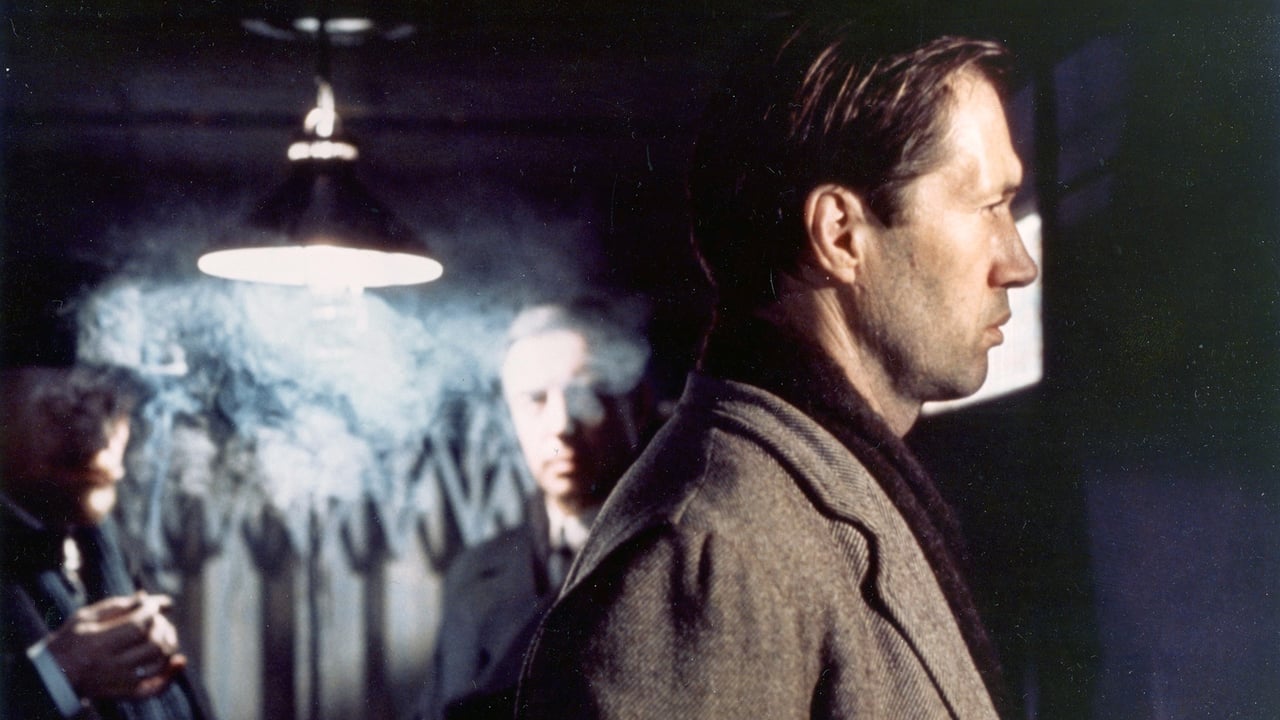

From what I've read, "The Serpent's Egg" is considered Ingmar Bergman's worst movie. Watching it, I didn't find it terrible. I guess that I haven't seen enough of Bergman's movies to fully judge (I've only seen "The Seventh Seal" and "Autumn Sonata"). It had the feeling of a 1920s expressionist film. I guess that the movie was a metaphor for the rise of Nazism: people slowly realized that something terrible was rising but felt helpless to stop it. The cabaret scenes are neat. I did find the ending abrupt, though.As he often did, Bergman cast Liv Ullmann. The surprising cast members here are David Carradine (Bill in "Kill Bill") and Gert Fröbe (the title role in "Goldfinger"); also appearing is James Whitmore (a noted actor for many years, he appeared in the Miracle Gro commercials towards the end of his life).So, it's not a masterpiece, but nothing terrible.
... View MoreThe film is very well shot and lit, it certainly has high production values. It is compelling to watch, though it seems long at times. There is a slow-moving intensity to it, both literally, with the slow-motion shots early and late on, and in the sense of a slow rhythmical tread to the story. Set, supposedly in 1923, there are surely too many ideas from a later time, the Thirties in particular, to make it properly credible. What is well caught is the despair and darkness of post-World War 1 Germany, with collapsing economy, high unemployment and the resultant problems. The revelation of the medical experimental factory looks too far-fetched and fantasticational to me and ill-consorts with the setting and time-period. Another issue is that there is little or nothing to like or admire in the central character, played quietly but intensely by David Carradine. One keeps on wishing that he'd followed his brother's example and shot himself, so dark and unpleasant is he. One feels an affinity for the Liv Ullmann and Gert Frobe characters, trying hard to live honestly in a world falling apart. I feel that big problem is trying to equate two different periods in Berlin at one and the same time. The Twenties and Thirties were not the same, though connected, of course, and should have been kept separate. Putting them together didn't help the film of its credibility.
... View MoreI say this with a heavy heart as I love Bergman and his films, but while it has good points and it is at least better than All These Women The Serpent's Egg didn't do it for me. It is an incredibly well made film, I cannot deny that, Sven Nykvist's cinematography is wonderful and adds so much to the atmosphere. The scenery is similarly evocative. On top of that, the opening sequence is a brilliant one and promises so much, Liv Ullman shows once more why she was and is one of Sweden's finest actresses and Heinz Bennett makes for an effectively sinister villain without it being too stereotypical.The Serpent's Egg however is while quite different and interesting a disappointment, especially considering that we are talking about one of cinema's greatest directors here. Bergman does seem out of his depth, introducing some interesting ideas but not developing them enough and there are not enough I feel of his distinctive trademarks. The story is rather convoluted with an ending that comes across as rather heavy-handed, some intriguing ideas that come across as half-baked and a brothel scene that is among my least favourite scenes ever in a Bergman film. The dialogue is rambling and banal and David Carradine's performance is overwrought and stiff on the whole.All in all, has its good and fascinating moments but one of Bergman's lesser films. 5/10 Bethany Cox
... View MoreThe title, The Serpent's Egg, had me wondering for a moment until I realized that it did not refer to the the Doctor and his bizarre experiments nor to Abel and his misery, but to the encapsulated Germany of the 1920s and the environment that led to Hitler's ascent in the 1930s. That is, Germany being the 'egg', Hitler and the Nazis as the 'Serpent', and the environment as the embryo of the egg.In many ways, this is a cynical film, in that it attempts to show that degradation, fear and loss of life and livelihood is sometimes stronger than humanity and even love. Isn't this true about Germany in the 1920s, and other nations at other times as well? We only have to look at ourselves after the attacks of 9/11 to see a time when fear overcame reason. Fear allowed us to meekly accept the chipping away of our own civil rights and privacy, and also government sponsored torture.It also gives us a glimpse at one of Hitler's truisms, which is that if he could have a person at age 7, then that person would be a Nazi for life. The experimenting Doctor re-states this in his observations that the sons and daughters of the defeated German populace will be the ones who create the new German society, of which he already is a part with his inhumane human experiments.Of course, all this is done with hindsight, so how can it be wrong? It can't, but then it's still a good review of a period in Germany that many Americans know nothing about, and should learn if they want the answers to the question of how Naziism came to be. It wasn't just some sort of aberration never seen in history before nor repeated.
... View More